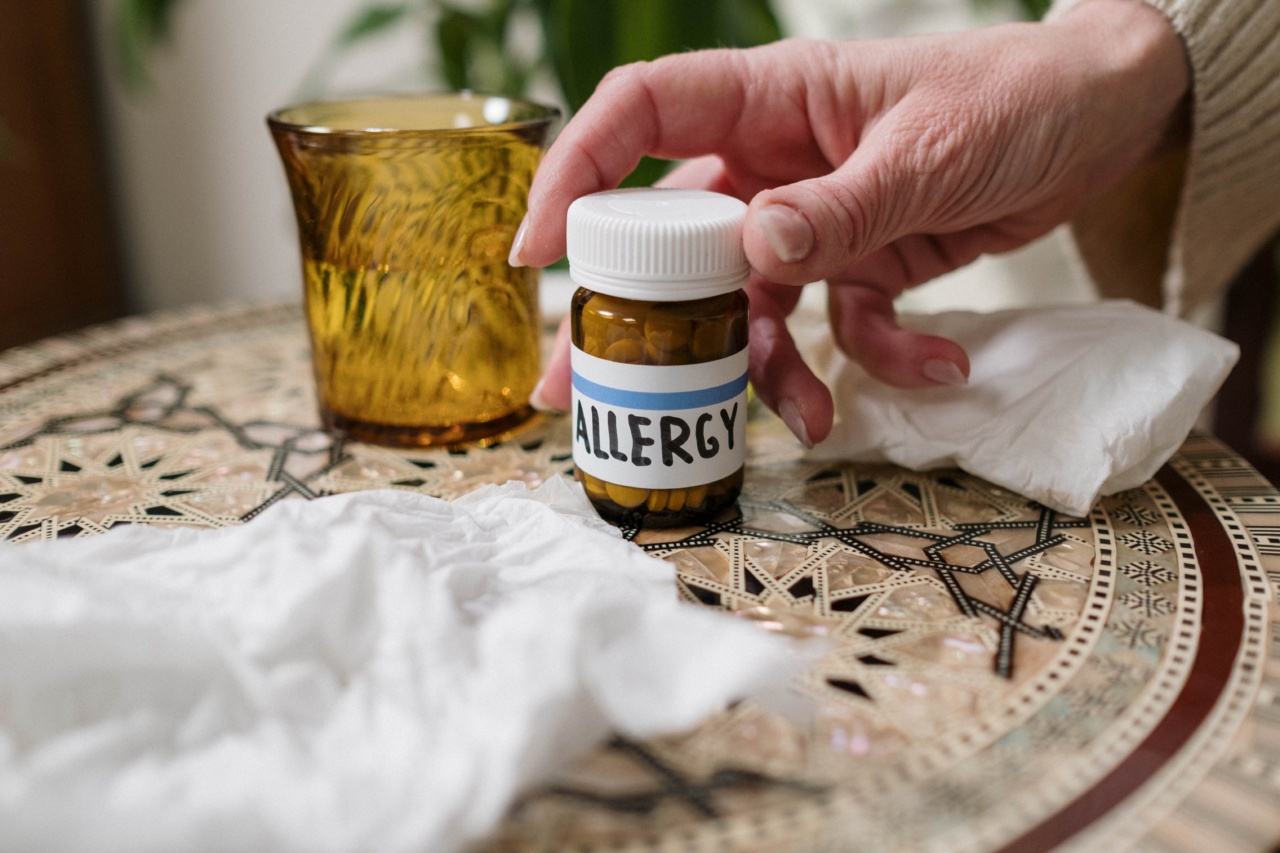Allergic rhinitis, commonly known as hay fever, is a condition characterized by an allergic response to various airborne allergens. It causes symptoms such as sneezing, itching, nasal congestion, and a runny nose.
These symptoms can significantly impact a person’s quality of life, affecting their sleep, work productivity, and overall well-being. Fortunately, several effective treatments are available to alleviate the symptoms and improve the quality of life for individuals with allergic rhinitis.
1. Avoidance of Allergens
One of the first and most important steps in managing allergic rhinitis is to identify and avoid the allergens triggering the symptoms.
This may involve staying indoors during peak pollen seasons, using air purifiers or filters, and keeping windows closed to prevent the entry of pollen or other airborne allergens into the living space.
2. Nasal Irrigation
Nasal irrigation, also known as nasal cleansing or nasal rinsing, involves flushing the nasal cavity with a saline solution. This can help remove allergens and irritants from the nasal passages, reducing inflammation and relieving congestion.
Neti pots, squeeze bottles, or nasal sprays can be used to perform nasal irrigation.
3. Antihistamines
Antihistamines are widely used to manage the symptoms of allergic rhinitis. They work by blocking the effects of histamine, a chemical released during an allergic reaction. Antihistamines can effectively relieve sneezing, itching, and a runny nose.
They are available in various forms, including oral tablets, nasal sprays, and eye drops.
4. Intranasal Corticosteroids
Intranasal corticosteroids are considered the most effective treatment for moderate to severe allergic rhinitis.
These medications work by reducing inflammation in the nasal passages, providing long-term relief from nasal congestion, sneezing, and itching. They are usually available as nasal sprays and require regular use for optimal efficacy.
5. Decongestants
Decongestants help alleviate nasal congestion by shrinking the blood vessels present in the nasal passages. They provide temporary relief from blocked nose and sinus pressure.
Decongestants are available in oral forms as well as nasal sprays, but prolonged use of nasal sprays can lead to a rebound effect, so they should be used cautiously as per the healthcare provider’s recommendations.
6. Immunotherapy
Immunotherapy, also known as allergy shots, is a long-term treatment option for allergic rhinitis. It involves exposing the individual to gradually increasing amounts of the allergen causing the allergic reaction.
Over time, the immune system becomes desensitized to the allergen, reducing the severity of the symptoms. Immunotherapy is usually recommended for individuals with severe symptoms or those who do not respond well to other treatments.
7. Alternative Treatments
In addition to conventional treatments, some alternative therapies may offer relief for allergic rhinitis symptoms. These include acupuncture, herbal remedies, probiotics, and homeopathic treatments.
While some individuals may experience symptom relief with these approaches, it is important to consult with a qualified healthcare professional before trying alternative treatments.
8. Allergen Immunomodulators
Allergen immunomodulators are a relatively new treatment option for allergic rhinitis. These medications help modify the immune response to allergens, reducing the severity of the allergic reaction.
They are available as tablets or drops placed under the tongue.
9. Eye Allergy Treatments
Allergic rhinitis can cause eye-related symptoms such as redness, itching, and watering. Specific eye allergy treatments, including antihistamine eye drops and mast cell stabilizers, can provide relief for these symptoms.
These eye drops can be used as needed or on a regular basis, depending on the severity of the symptoms.
10. Lifestyle Modifications
Alongside medical treatments, certain lifestyle modifications can help manage allergic rhinitis.
These include keeping the home clean and dust-free, avoiding exposure to tobacco smoke, wearing sunglasses to protect the eyes from allergens, and washing bedding regularly in hot water to remove allergens. Regular physical exercise, a healthy diet, and sufficient sleep also contribute to overall immune health.



























